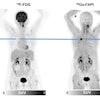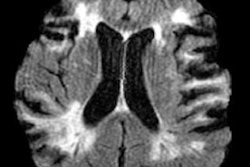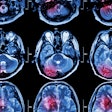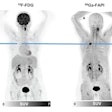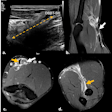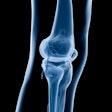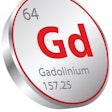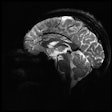
A research team using MRI has found that a novel anticoagulant can prevent recurrent ischemic stroke, according to a presentation delivered at the European Society of Cardiology (ESC) annual congress in Barcelona.
The findings are part of the PACIFIC-Stroke trial, and they show that inhibition of factor XIa with asundexian decreased incidence of recurrent ischemic stroke and transient ischemic attack without increasing bleeding in the brain, noted study lead author Dr. Ashkan Shoamanesh of the Population Health Research Institute in Hamilton, Ontario, Canada. The trial explored the efficacy, safety, and optimal dose of asundexian for secondary stroke prevention, and it included 1,808 patients.
Patients were randomized within 48 hours of experiencing stroke to once-daily asundexian at 10 mg, 20 mg, 50 mg or a placebo in addition to antiplatelet therapy. All patients underwent brain MRI at baseline and at six-to-12-month follow-up. Primary outcome of the research was whether patients manifested clinically relevant but nonmajor bleeding at 12 months after the initial stroke. Secondary outcome of the study was whether patients suffered another stroke or stroke plus transient ischemic attack.
The team found the following regarding the primary outcome of bleeding at six months after initial stroke:
- Out of the patient cohort, 362 bleeds occurred.
- 19.1% of patients in the placebo group experienced bleeding.
- 18.9% in the 10 mg group experienced bleeding.
- 22% in the 20 mg group experienced bleeding.
- 20.1% in the 50 mg group experienced bleeding.
Over total follow-up (up to 12 months, median 10 months), the investigators found the following:
- Out of the patient cohort, 125 recurrent symptomatic ischemic strokes or transient ischemic attacks occurred.
- 8.3% of these were in the placebo group.
- 7.7% were in the 10 mg group.
- 6.2% were in the 20 mg group.
- 5.4% were in the 50 mg group.
"The results of PACIFIC-Stroke indicate that the potential of asundexian to prevent stroke in selected patients should be investigated further," Shoamanesh said in a statement released by the ESC.



